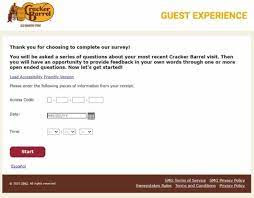In today’s fast-paced world, the need for notarized documents is increasingly common
Whether you're finalizing a business deal, purchasing a property, or handling legal paperwork, a notary public's services are essential. notary public near me This article will guide you through the process of finding a reliable notary public near you, understanding their role, and preparing for your appointment.
Understanding the Role of a Notary Public
A notary public is a licensed official authorized to perform certain legal formalities, primarily the witnessing of signatures on documents. Their main responsibilities include:
- Verifying Identity: Ensuring that the signers of a document are who they claim to be by checking identification documents like passports or driver’s licenses.
- Witnessing Signatures: Observing the signing of documents to confirm that it is done willingly and knowingly.
- Administering Oaths and Affirmations: Overseeing the swearing in of oaths for affidavits or other legal documents.
- Certifying Copies: Confirming that copies of certain documents are true and accurate reproductions of the originals.
These tasks are critical in preventing fraud and ensuring the authenticity of documents, which is why finding a competent notary public is essential.
Why You Might Need a Notary Public
The services of a notary public are required in various situations, such as:
- Real Estate Transactions: Deeds, mortgages, and other property documents often need notarization.
- Legal Documents: Powers of attorney, wills, and contracts may require notarization to be legally binding.
- Business Transactions: Agreements, affidavits, and other business documents often need a notary’s seal.
- International Documents: Documents intended for use abroad, such as adoption papers, educational certificates, or travel consent forms, often need notarization.
Finding a Notary Public Near You
When you need a notary public, you want to find one quickly and conveniently. Here are some steps to help you locate a notary near you:
- Online Search: The easiest way to find a notary public near you is by conducting an online search. Use search engines like Google with keywords such as “notary public near me” to find listings and maps showing nearby notaries.
- Notary Directories: Websites like NotaryRotary.com, 123Notary.com, and the National Notary Association offer directories where you can search for notaries by location.
- Bank and Financial Institutions: Many banks offer notary services to their customers. Check with your local branch to see if they provide this service.
- Legal Offices: Law firms and attorney offices often have notaries on staff. Even if you are not a client, they may offer notary services for a fee.
- Shipping and Postal Services: Companies like UPS, FedEx, and the United States Postal Service often have notaries available in their stores.
- Libraries and Government Offices: Some public libraries and government offices provide notary services to the community.
- Mobile Notary Services: If you cannot travel, consider hiring a mobile notary. These professionals come to your location to notarize documents for an additional fee.
Preparing for Your Notary Appointment
To ensure your notary appointment goes smoothly, follow these steps:
- Bring Valid Identification: Notaries require valid, government-issued photo identification, such as a driver’s license, passport, or state ID.
- Have All Documents Ready: Ensure that all documents needing notarization are complete and ready for signing. Do not sign the documents beforehand; the notary must witness the signature.
- Know What Type of Notarization You Need: Understand whether you need an acknowledgment, jurat, or another type of notarization. If unsure, ask the notary for guidance.
- Check Fees: Notaries can charge fees for their services, which vary by state and type of notarization. Verify the cost beforehand to avoid surprises.
- Understand the Requirements: Some documents may have specific notarization requirements. Make sure you know what is needed to avoid delays.
Legal and Ethical Considerations
Notaries public are bound by a strict code of ethics and state laws. They must:
- Remain Impartial: Notaries cannot notarize documents in which they have a personal interest.
- Follow State Laws: Each state has its own notary laws and regulations. Notaries must be familiar with and adhere to these laws.
- Maintain Records: Many states require notaries to keep detailed records of their notarizations, often in a notary journal.
- Prevent Fraud: Notaries must be vigilant in verifying identities and ensuring that signers are not under duress or being coerced.
The Rise of Online Notarization
With technological advancements, online notarization has become increasingly popular. This process allows notaries to perform their duties remotely using digital tools. Online notarization offers several benefits:
- Convenience: Signers can complete the notarization process from the comfort of their homes.
- Speed: Online notarization can be faster than traditional methods.
- Security: Digital notarization platforms often include robust security features to prevent fraud.
To use online notarization, you’ll need:
- A Reliable Internet Connection: Ensure you have a stable internet connection for the video conference with the notary.
- Digital Documents: Prepare digital versions of the documents that need notarization.
- Identification: Be ready to provide digital copies of your identification documents.

Comments
Post a Comment